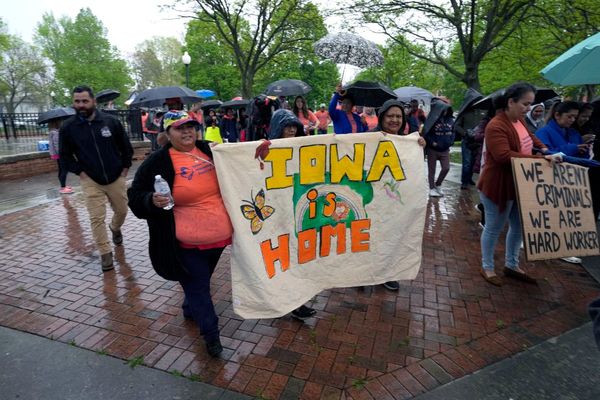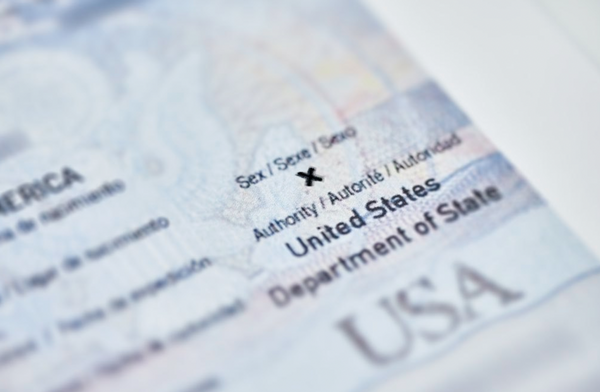
Billionaire mining magnate Clive Palmer is suing the Australian government for $69 billion because of a “pro-climate change, anti-coal” judge that he alleges supports the “extremist” Extinction Rebellion.
It comes as a response to a landmark decision by President of the Queensland Land Court Fleur Kingham in November 2022 that recommended Palmer’s Waratah Coal should have its application for a mining lease and an environmental authority in the Galilee Basin for a thermal coal mine rejected. It was the first decision of its kind, and while the decision remains subject to ministerial approval, the state’s environment and resources ministers take the court’s recommendation into account.
In a mammoth 372-page decision, Kingham found that the project should be rejected on three grounds: the impact of the project on the nearby Bimblebox Nature Refuge, a nearby 8000-hectare pocket of untouched woodlands in the area; its contribution to climate change; and its impact on human rights.
The application was primarily opposed by a group of First Nations youth called Youth Verdict, as well as the Bimblebox Alliance, with the Environmental Defenders Office (EDO) running the case. Now, Palmer’s Zeph Investments (which owns 100% of Waratah Coal, as the 100% owned subsidiary of Mineralogy, another one of Palmer’s mining ventures), is seeking to commence litigation against the Commonwealth because of the outcome of the Queensland Land Court decision.
While lawyers for Waratah Coal filed in the Queensland Court of Appeal in December 2022, the appeal was withdrawn in February this year. In October however, Zeph Investments filed a notice of intention to commence arbitration against the Commonwealth under an international legal mechanism called an investor-state dispute settlement (ISDS).
Under the Singapore-Australia Free Trade Agreement (SAFTA), as with a number of other trade agreements, companies in the relevant countries have their trading rights protected by means of the ability to litigate. Australia is a party to a number of trade agreements that protect foreign investment — while Palmer might be Australian, Zeph Investments is domiciled in Singapore, and the ownership of his mining interests was transferred to it in 2019. It is this free trade agreement that Palmer is looking to use to sue the Australian government. The notice is addressed to Senator Penny Wong as the Minister for Foreign Affairs and Trade, as well as the Attorney-General’s department.
Zeph Investments claims in the notice that Kingham, the judge presiding over its failed application from November 2022, was “a political appointee with an anti-coal, pro-climate change activist agenda”, who “secretly coached (the Environmental Defenders Office) on how to oppose the proposed thermal coal mine in the Galilee Basin”. Zeph also alleges that Kingham had “publicly expressed her support for the extremist climate change organisation Extinction Rebellion”, who were protesting the project (along with other fossil fuel projects in Queensland) at the time.
The claims that Kingham was a “political appointee” are substantially based on the reporting of the Courier-Mail, which in March 2022 published a story by Peter Gleeson titled “Court of comrades: Meet the ALP’s buddies on the bench”, which described Kingham as a “one-time Labor figure and wife of David Barbagallo (former chief of staff to premiers Wayne Goss and Annastacia Palaszczuk)”. Barbagallo quit as Palaszczuk’s chief of staff in 2019 amid an investigation from the state’s Crime and Corruption Commission, but was eventually cleared of corruption (although he was found to have breached a number of disclosure requirements). Zeph also claims that “it is widely believed in legal circles that Kingham had been appointed by the anti-coal faction of the Queensland Labor Party as President of the Land Court to … achieve its anti-coal policy objectives”.
The claim that Kingham coached the Environmental Defenders Office on how to run the case is based on a 2018 seminar she presented titled “Scope 3 Emissions, Climate Change and Coal Markets at the Environmental Defenders Office Climate Law Update”, where she discussed climate cases in the Queensland Land Court — a seminar that Zeph claims was attended by a number of EDO lawyers. Zeph also claim that Kingham acted improperly in communicating with EDO lawyers regarding practice directions in mining objection hearings.
The claim that Kingham is a supporter of Extinction Rebellion is based on an Instagram post alleged to be by her from July 2019, in which she posted a photo of an Extinction Rebellion leaflet apologising for the delays associated with protest actions.
“Brisbane has the most polite Extinction Rebellion protestors,” Kingham allegedly wrote.
“Long story, but this is my second round in the traffic stall. Lots of support for them though. [smiley face emoji, thumbs up emoji, thumbs up emoji]”
As a result, Zeph claims that the landmark outcome in the Queensland Land Court was biased, and along with the Environmental Defenders Office receiving state and federal government funding, constituted a breach of the Australian government’s obligations under the SAFTA. Zeph claims to have suffered a net loss of $69 billion (as the claimed value of the Galilee Basin thermal coal proposal) and is seeking damages of that amount.
Palmer, when contacted by Crikey, said the case was about “making sure we’ve got an independent judiciary”.
“You’ve got a judge who was a member of Extinction Rebellion, a member of the Labor Party, instructed opposition on how to run their case. It’s about making sure we’ve got an independent judiciary. It’s a pretty troubling thing what’s happening in Australia.”
(Palmer has not substantiated his claim that Kingham is a “member” of Extinction Rebellion. The only evidence provided in the notice of intention is the aforementioned Instagram post wherein the judge mentions the group.)
The SAFTA requires that a notice of intention to commence arbitration be filed at least 90 days before any claims are actually filed, which gives the government time to consider a response.
While ISDS disputes are relatively unique, with only two cases ever previously filed against Australia (the government famously defeated tobacco multinational Philip Morris over plain packaging legislation in 2015), this is not Palmer’s first bite of the cherry. Zeph Investments filed a notice of intention over the same Galilee Basin project under the ASEAN-Australia-New Zealand Free Trade Agreement (AANZFTA) in May this year, on top of a mammoth $300 billion claim under the same agreement relating to the Balmoral South Iron Ore project in the Pilbara.







